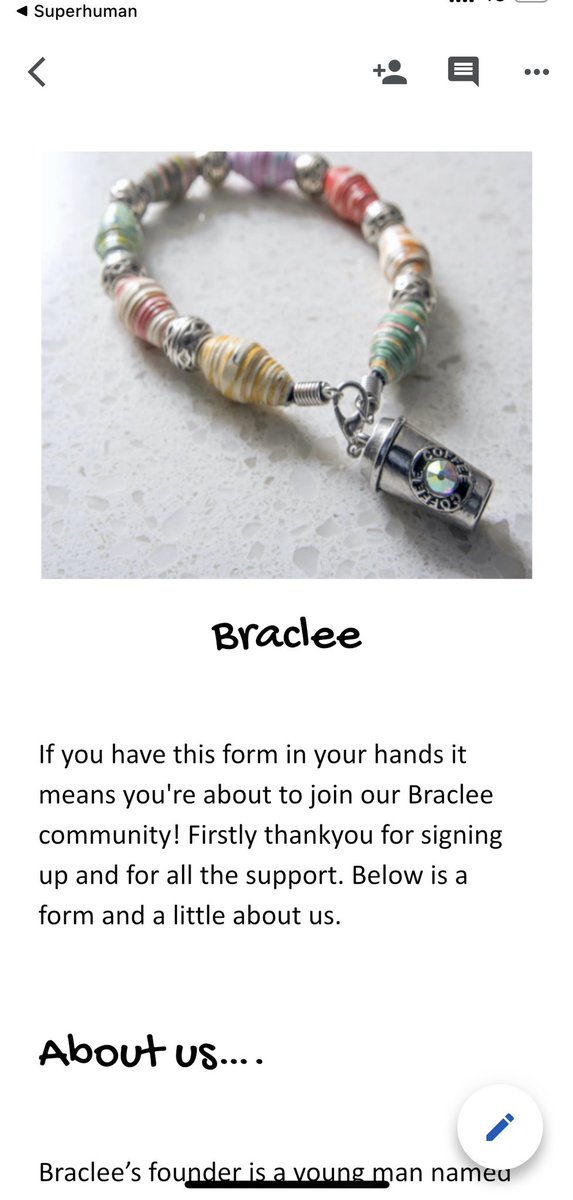#Startuplessonsfromkids
My son lobbied me to buy him a bracelet making kit from amazon.
I reluctantly agreed.
Thread
My son lobbied me to buy him a bracelet making kit from amazon.
I reluctantly agreed.
Thread
A week after arrival of said kit he walks up to say he has started a jewelry making company called “Braclee” and wished that I be customer number 1.
Proud of his industry I obliged, purchased 3 and was made to wear my brightly colored bracelets all the time inside and outside.
A few days later I get an email with a link to a google form from my daughter who introduced herself as new cofounder / and investor at Braclee. 

Said form was essentially to intimate me about a change in their busienss model with the introduction of a monthly subscription option that offered you 1 new bracket for 1/10 of the price I paid a few earlier so long as you signed up and paid their low monthly membership fee. 🤓
I was like haha and immediately signed up feeling like a super dad!
I guess all the hours watching shark tank and their sometimes creeping into my office and listening to my conference calls is rubbing off.
Besides being the proud dad; I was reminded of a few classic startup principles;
1. Focus on what your market needs. The jewelry loving ladies rule in my home at a ratio of 70% ratio.
2. Recurrent revenues rule
3. Use digital tools
4. Don’t hug all your equity, trade equity for the runway you need.
5. MVP and then scale
2. Recurrent revenues rule
3. Use digital tools
4. Don’t hug all your equity, trade equity for the runway you need.
5. MVP and then scale
Once again, my job here is done!
• • •
Missing some Tweet in this thread? You can try to
force a refresh




